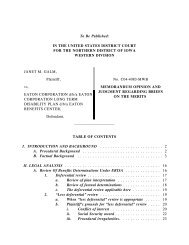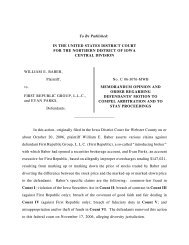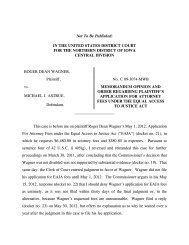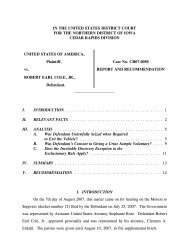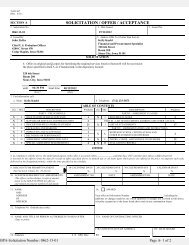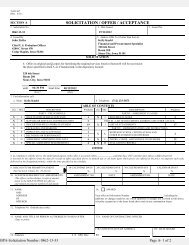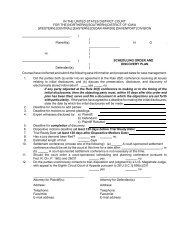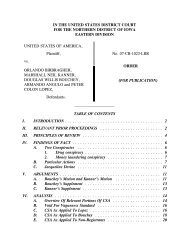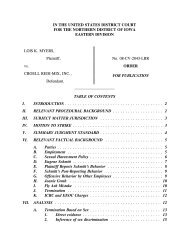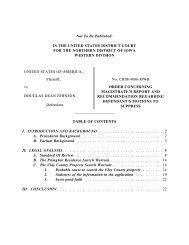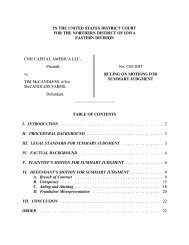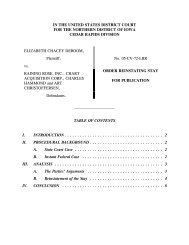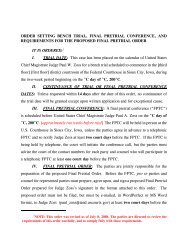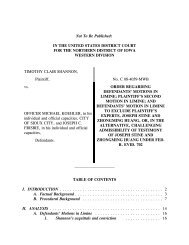Arnzen v. Palmer - Northern District of Iowa
Arnzen v. Palmer - Northern District of Iowa
Arnzen v. Palmer - Northern District of Iowa
Create successful ePaper yourself
Turn your PDF publications into a flip-book with our unique Google optimized e-Paper software.
Against this backdrop, we can discern no justification<br />
for treating a Fourth Amendment claim based upon a search<br />
differently than a claim based upon a seizure. Thus, Andrews,<br />
which addresses a seizure claim, articulates the appropriate<br />
standard for considering whether an involuntarily committed<br />
person has been subjected to an unconstitutional search. See<br />
Andrews, 253 F.3d at 1061. Youngberg illustrates the strength<br />
<strong>of</strong> the analogy between civilly committed persons and pretrial<br />
detainees, concluding these groups are similar even outside the<br />
context <strong>of</strong> a Fourth Amendment claim. See Youngberg, 457<br />
U.S. at 321-22, 102 S.Ct. 2452.<br />
Serna, 567 F.3d at 948-49. Applying these principles, the court held:<br />
Id. at 955-56.<br />
[W]hile we hold that the specific facts <strong>of</strong> Serna’s case present<br />
a close question <strong>of</strong> constitutional law, the searches were not<br />
unreasonable. The defendants’ security and treatment<br />
concerns are genuine and serious; the searches, while invasive,<br />
were conducted privately, safely, and pr<strong>of</strong>essionally; and the<br />
facility was reacting to a recurring problem. We view Serna’s<br />
case as an outer limit under the Bell 2 test and, as such, caution<br />
facility administrators to recognize that courts’ deference under<br />
Bell is not without limits.<br />
“The overriding function <strong>of</strong> the Fourth Amendment is to protect personal privacy<br />
and dignity against unwarranted intrusion by the State.” Schmerber v. California, 384<br />
U.S. 757, 767, 86 S. Ct. 1826, 1834, 16 L.Ed.2d 908 (1966). The court finds that the<br />
plaintiffs have greater privacy rights than those granted to convicted prisoners, and that the<br />
defendants’ use <strong>of</strong> video cameras under the circumstances <strong>of</strong> this case infringes on those<br />
rights. Accordingly, the court finds that the plaintiffs have shown that they are likely to<br />
succeed on the merits.<br />
2 Bell v. Wolfish, 441 U.S. 520, 99 S. Ct. 1861, 60 L.Ed.2d 447 (1979).<br />
8



